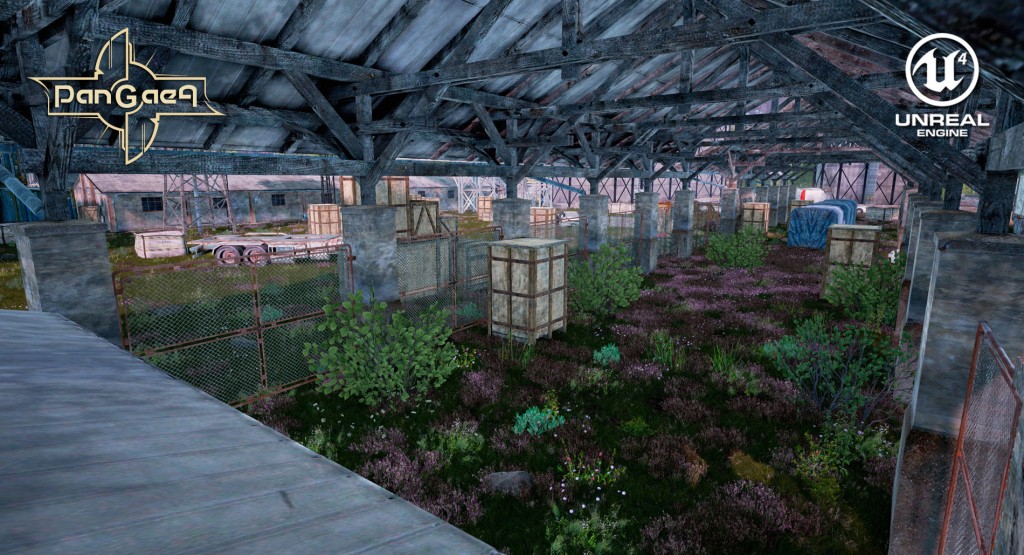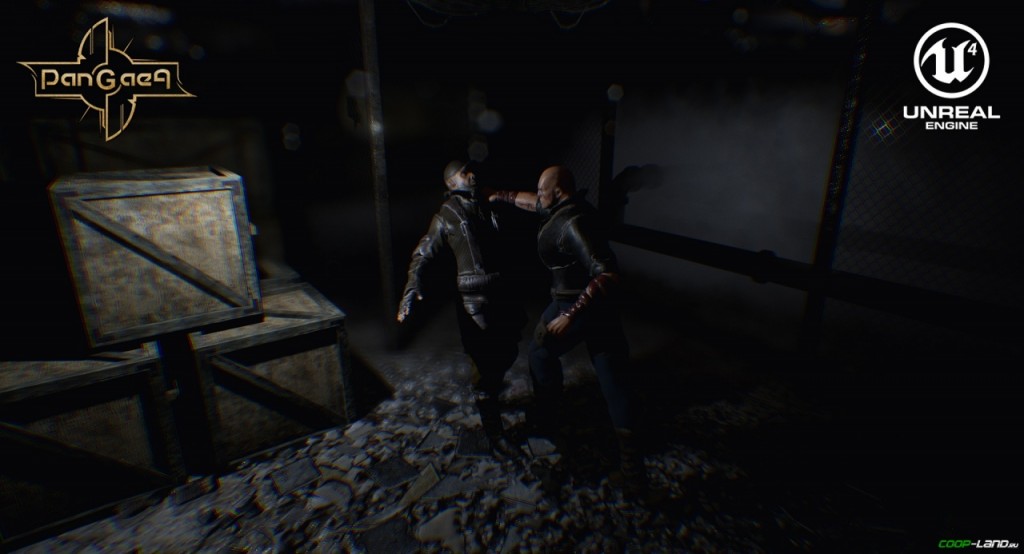Pangaea New World was an ambitious Kickstarter campaign from the beginning. Dubbed “A post apocalyptic survival game” by its creators, LVR Studio Ltd., it promised “an innovative and unique FPS multi-player action game with dynamic & interactive open worlds”. A playable tech demo was released recently, and shortly after it was announced that the funding for the campaign has been cancelled, due to “technical issues”. The developers promise it is not in fact the end of the game.

I had the chance to play the tech demo they released before ending the campaign. Built on Unreal Engine 4, it certainly looks pretty, with dark lighting and nifty explosions, but of the words “innovative FPS multiplayer open world game” very little of that was being shown off. Instead, it was a linear series of dark corridors, with two varieties of enemy and a single gun. There were no signs of any multiplayer or open-world elements on display, and the demo itself was buggy and extremely simple. This was only labelled as a tech demo, to be fair, but this kind of thing is easy to get cynical over.
Adding multiplayer to a game, or basing an entire game around multiplayer, is an extremely complex process in which almost anything can go wrong. Far too many first-time game developers are seeing the successes of such breakout hits as Minecraft or Day-Z and deciding they’re going to be the next big thing. Pangaea New World’s promises would make for an exciting game should everything come together perfectly, but creating a campaign with zero evidence of being able to create and, more importantly, sustain a multiplayer experience is more and more feeling like promising to lasso the moon.
This isn’t a new problem with Kickstarter, and it isn’t going to go away either. As the world of gaming campaigns becomes more and more crowded, significant pressure is put on developers to stand out and impress their audience. A simple project that has a clear beginning and end, and can be beaten and then forgotten usually doesn’t draw in backers like the promise of a sprawling, ever-changing landscape of adventure and discovery. Everyone who starts a Kickstarter campaign would love to be the next big thing, and would love to convince backers that’s exactly what they’re buying into. Games are being promoted as “the” game, rather than “a” game.

Technical issues aside, a new developer ambitiously tackling large-sale multiplayer projects seem to assume that by mere virtue of a game having multiplayer, it will have players. Obviously, this isn’t the case. Even if a game starts out popular, if the content doesn’t remain fresh and exciting, then player bases begin to fade, which in turn causes the more loyal players to have fewer people to play with and start to lose interests as well. A small-scale multiplayer game, such as a two to four player co-op game can potentially last forever, because they can be played even when the community has mostly left. But when these massively multiplayer projects start struggling to fill servers, they begin to die, for good.
Not that I’m saying these kinds of projects should never happen. They just need to be approached realistically, and developers need to realize that ambition isn’t everything. Pangaea New World might not be dead, but from the looks of things the developers are falling victim to what I’ll call the Kickstarter fallacy that they have to promise as many things as possible in order to find funding, regardless of their ability to deliver them. Rather than try to do everything, they, and all other developers, should do a few things and do them well. Massive, innovative, genre-busting megaprojects can wait until they have experience in smaller projects on the platform. No, mobile and browser development don’t count.
For those still interested in the project, LVR Studios now accepts funding directly through their website.



